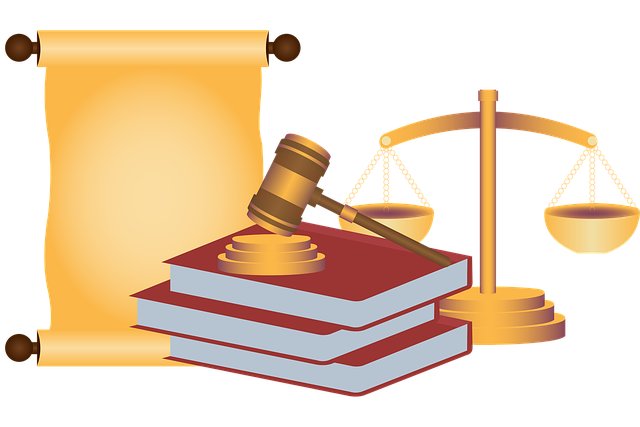Lawyers specializing in healthcare regulatory cases must master criminal law enforcement, delving into local codes, procedures, and evidence rules. Their expertise navigates investigations, grand juries, and precedents, crafting robust defenses against compliance, negligent practices, and ethical breaches. In a complex healthcare landscape, these professionals ensure adherence to privacy, distribution, and clinical trial regulations, mitigating liabilities and fostering trust, while leveraging knowledge of regulatory law to avoid costly lawsuits. Proactive strategies include staying informed about legislative changes and building community relationships to anticipate challenges.
Criminal law enforcement is a complex field requiring meticulous navigation. This article explores key aspects for legal professionals, focusing on healthcare regulatory cases—a niche area demanding specialized expertise. We delve into the unique challenges faced by lawyers specializing in these cases and highlight their vital role in ensuring justice. Through understanding the impact of specialization, we emphasize why these experts are indispensable in navigating complex criminal law matters successfully.
- Understanding Criminal Law Enforcement: A Foundation for Lawyers
- Healthcare Regulatory Cases: Unique Challenges and the Role of Legal Experts
- The Impact of Specialization: Why Healthcare Regulatory Lawyers are Essential
- Navigating Complexities: Strategies for Success in Criminal Law Enforcement Matters
Understanding Criminal Law Enforcement: A Foundation for Lawyers

Criminal law enforcement forms the backbone of legal systems worldwide, and for lawyers specializing in healthcare regulatory cases, understanding this intricate field is paramount. This foundation involves delving into the complexities of criminal code, procedures, and evidence rules specific to their jurisdiction. Lawyers navigating these waters must possess a robust understanding of how investigations unfold, from initial suspicion to grand jury proceedings and beyond.
An unprecedented track record of winning challenging defense verdicts often relies on this foundational knowledge. By grasping the nuances of criminal law enforcement, healthcare regulatory lawyers can craft compelling defenses, exploit procedural errors, and navigate the intricate web of legal precedents. Ultimately, their goal is to ensure their clients’ rights are protected and to avoid indictment whenever possible, demonstrating an exceptional command of this fundamental domain.
Healthcare Regulatory Cases: Unique Challenges and the Role of Legal Experts

Healthcare Regulatory Cases present a unique set of challenges for legal experts. These cases often involve complex regulatory frameworks, intricate medical jargon, and sensitive patient data. Lawyers specializing in healthcare regulatory cases play a crucial role in navigating these complexities. They ensure that their clients, ranging from individual practitioners to large healthcare organizations, understand and comply with the respective business’s legal obligations throughout all stages of the investigative and enforcement process.
These legal experts help in avoiding indictment by meticulously constructing defenses that address issues like non-compliance, negligent practices, and ethical breaches. Their strategic interventions can significantly mitigate risks and protect their clients’ interests. By leveraging their deep understanding of healthcare laws and regulations, these lawyers guide their clients in making informed decisions, thereby enhancing the overall quality of care and ensuring adherence to legal standards.
The Impact of Specialization: Why Healthcare Regulatory Lawyers are Essential

In today’s complex healthcare landscape, specializing in regulatory law has become increasingly vital. Healthcare Regulatory Lawyers play a crucial role in navigating the intricate web of laws and guidelines that govern medical practices, ensuring their respective businesses operate within legal boundaries. With regulations covering areas like patient privacy, medication distribution, and clinical trials, these specialists are indispensable for safeguarding both patients and healthcare providers from potential risks and avoiding indictment.
Their expertise extends to assisting clients in understanding and adhering to a myriad of rules, thereby reducing the chances of legal complications. By staying abreast of legislative changes and industry-specific regulations, these lawyers enable their clients to make informed decisions, mitigate liabilities, and foster a culture of compliance. This specialized knowledge is particularly critical as it helps businesses steer clear of costly lawsuits and maintains public trust in an ever-evolving healthcare sector.
Navigating Complexities: Strategies for Success in Criminal Law Enforcement Matters

Navigating the complexities of criminal law enforcement requires a strategic approach, especially when dealing with specialized areas like healthcare regulatory cases. Lawyers specializing in these matters must possess an in-depth understanding of both legal and industry-specific nuances. They play a pivotal role in guiding clients through intricate regulations, ensuring compliance, and mitigating potential risks.
Successful outcomes in criminal law enforcement often hinge on proactive strategies. This includes staying abreast of legislative changes, regulatory updates, and case precedents relevant to healthcare industries. By fostering strong relationships within the philanthropic and political communities across the country, legal professionals can anticipate and address emerging challenges. Furthermore, effectively handling white-collar and economic crimes demands a meticulous investigation process, utilizing advanced techniques to uncover evidence and build robust defenses for clients facing these complex allegations.
In conclusion, the intricate field of criminal law enforcement demands a deep understanding of both legal principles and specialized sectors. Lawyers specializing in healthcare regulatory cases play a pivotal role in navigating these complexities, ensuring justice is served while addressing the unique challenges within the healthcare industry. By employing strategic approaches outlined in this article, these legal experts can successfully manage matters involving criminal law and healthcare regulations, ultimately contributing to a fair and effective justice system.






